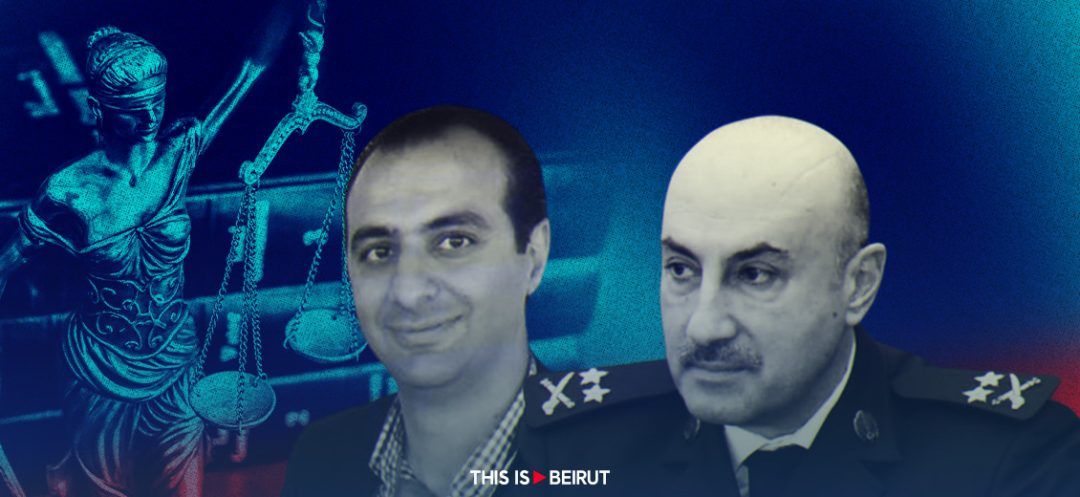
The military tribunal has begun the prosecution of State Security Director General, General Tony Saliba, over his suspected responsibility in the escape of convict Dani al-Rachid from a State Security prison last week. The prosecution in question has laid the foundations for a new methodology that the justice system would adopt vis-à-vis the State Security apparatus and other security services in cases of incompetence or shortcomings.
The Government Commissioner to the Military Tribunal, Judge Fadi Akiki, has started proceedings linked to Dani al-Rachid’s escape. In addition to Saliba, the prosecution targeted General Pierre Barrak and five others, including prison guards. The lawsuit was transferred to first military investigation judge, Fadi Sawan, who was requested to question the suspects and issue the necessary judicial warrants. According to a judicial source interviewed by This is Beirut, “different crimes were committed, ranging from complicity, to facilitation and negligence leading to the escape.”
The proceedings started following the conclusion of the primary investigation initiated by judge Akiki over five days, under the direct supervision of the Court of Cassation General Prosecutor, Jamal al-Hajjar, who concluded that al-Rachid “was a prisoner in name only, and was not treated the way other inmates were.” Sources monitoring the case confirmed to This is Beirut that “after thorough searches, it turned out that al-Rachid occupied none of the prison cells,” adding that “al-Rachid, who is the director of the office of former Minister Salim Jreissati, and Saliba’s special advisor, was kept in a fully-equipped studio apartment with all the amenities needed, including a cell phone, a television, and a personal WIFI connection. Furthermore, al-Rachid was hosting guests around the clock and was allowed to roam around the garden freely.”
In the past hours, investigators sought to unravel the mystery of Dani al-Rachid and understand the reasons behind his VIP treatment. The same sources indicated that al-Rachid “had privileges” even before his arrest, such as no State Security officer has ever enjoyed. The State Security gave him access to a military vehicle and a four-digit phone number (usually given only to high-ranking officers) and even assigned bodyguards for his personal safety.
“After his arrest, and during his questioning, al-Rachid’s family was taken to the Palace of Justice in Zahle in vehicles provided by the State Security, and with private protection,” the sources said, adding, “Exposing corruption within the State Security service could open the door for investigating similar practices in other services where some individuals receive favorable treatment too.”
The primary investigation also shed light on the importance of determining the identity of the individuals who helped al-Rachid escape from prison and transported him to the Syrian border, as well as the people who facilitated his illegal crossing into Syria. According to the sources, “camera surveillance showed that al-Rachid was walking in the garden a few hours prior to his escape, presumably to avoid being transferred to Roumieh prison, as instructed by Court of Cassation General Prosecutor, Judge Jamal al-Hajjar.”
Read more



Comments